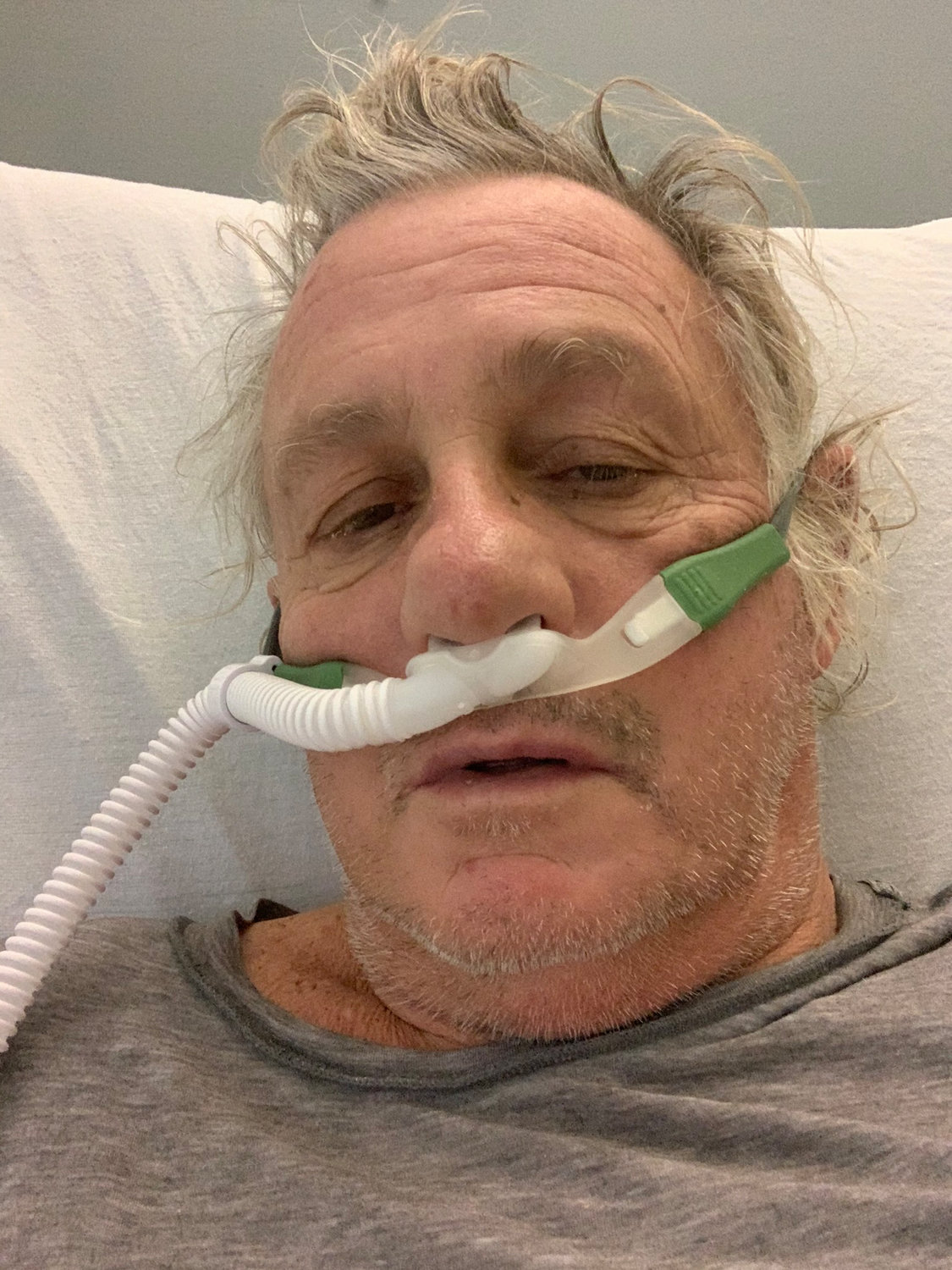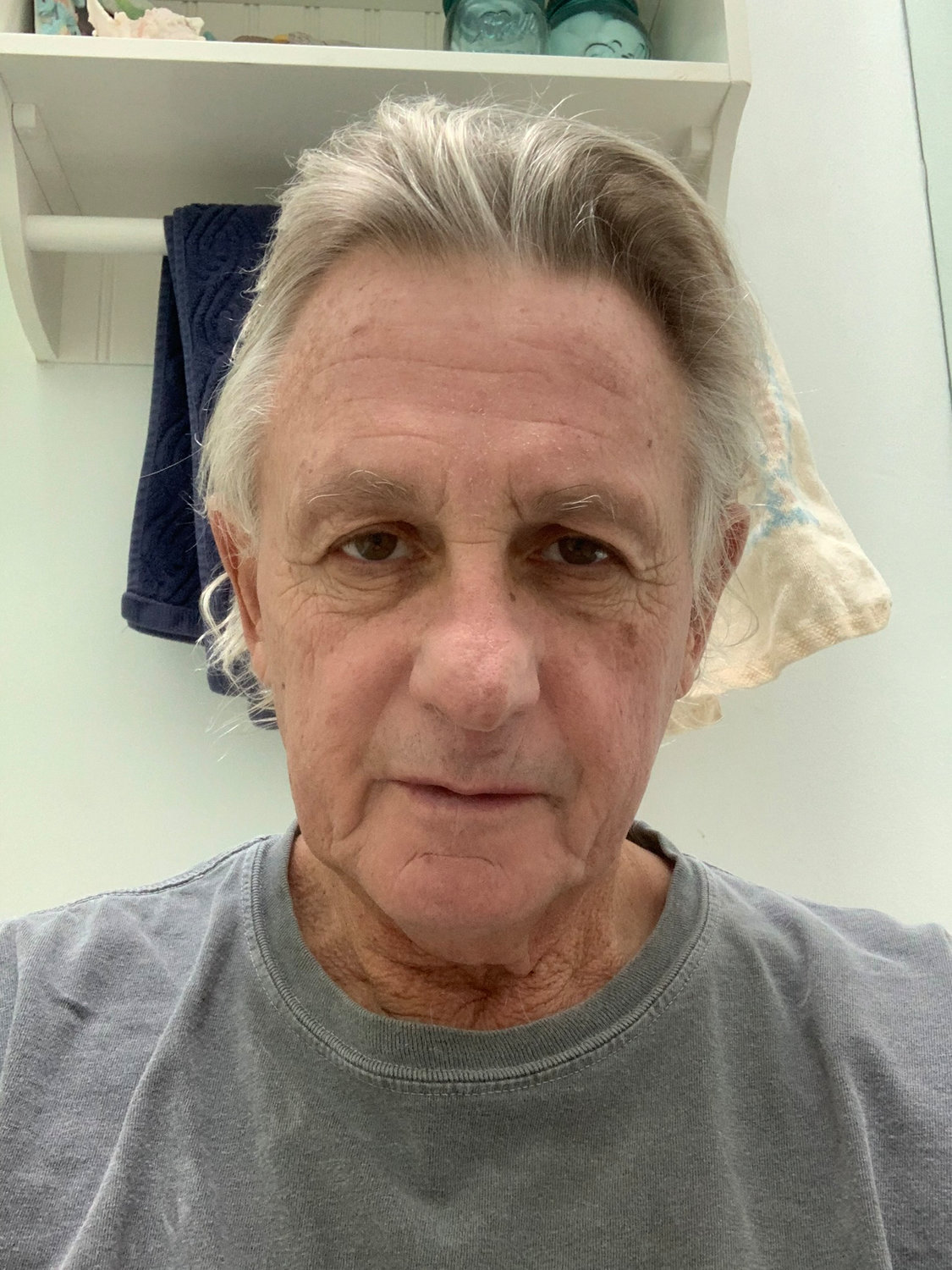Long Beach man who battled back from coronavirus shares story of near-death illness, recovery and new perspective on life
Lots of ski enthusiasts in Saint Anton, a resort in Austria, took television and other media talk of coronavirus lightly in March. They even joked bout the illness and ordered Coronas in taverns, Andre Marcell, who was vacationing there with his wife, Lynn, recalled last week.
The couple, who live in Long Beach, returned home Saturday, March 14, with some great stories about skiing, nice tans - and cases of coronavirus that sickened Lynn Marcell and almost ended Marcell's life.
Marcell, owner of Rip Tide Films, a Manhattan-based company that produces advertising campaigns for such children's' toys as Transformers, GI Joe and Cabbage Patch dolls, wanted to share his story of illness and his near-death experience, to both remind people that coronavirus is a serious disease and to express how important it is to enjoy every day.
To accentuate the horror, Marcell said that when he was hospitalized at Mount Sinai Nassau Medical Center, and still able to speak, he called a friend, a psychologist, to share his dark thoughts. "I told him I'm never going to see my second daughter married. I'm never going to see my grandchildren."
Marcell may not have know how close to death he was. His fever was so high he was barely conscious for part of the time he was hospitalized. But he said a doctor told his family "This could go either way."
Marcell spent two weeks in the hospital. He turned 65 there, and spent more time at home recovering. He is incredibly grateful to the doctors, nurses and staff at the hospital for his recovery. But he had a mountain to climb before he got there.
The trip to Austria was fun, but there was talk, just light talk, about coronavirus. At the end of their vacation, the couple planned to return to Kennedy Airport but the flight was diverted to Newark.
At Newark, Marcell said, "We were stuck on long lines and in waiting rooms where people were coughing and sick around us."
By Monday, March 16, Marcell said, he has a high fever and intestinal problems, but believed he had a simple bug. He was tested for coronavirus the next day, and confirmed positive Friday. He does not know whether he contracted the virus in Austria or at the airport.
His sister, Nicole Astil, a doctor in New Jersey, was alarmed about his symptoms. He was living in the basement of his home, his wife providing him with orange juice and aspirin. His sister insisted he take a blood oxygen test, and brought a testing device with her. His level was low, and he was admitted to the hospital on March 27, with a high fever and unstoppable chills.
His daughter, Lauren, a medical student at the University of Washington in Seattle, was monitoring the situation from across the country, but decided she needed to be by her father's side.
Lynn Marcell, meanwhile, was ill for with coronavirus, but was not hospitalized and suffered from a cough for weeks.
At the hospital, the virus raged through his body. He had double penumonia. Doctors debated whether to put him in intensive care. On his 65th birthday, there was no celebrating. He came April 10, on oxygen. He had lost 30 pounds, going down to 160 when he was discharged.
Initially, the hospital staff said they had no available oxygen tanks and wanted to transfer Marcell to the Jacob J. Javits Center in Manhattan, which was then treating coronavirus patients. "But Lauren went crazy and made thousands of calls" and located an oxygen tank. Marcell said.
Lauren said she did not get to see her father in the hospital, following medical guidelines for Covid-19 patients.
"I didn't get to see him until he was discharged," she said. "He was characterized as a severe case. We had doctors tell us they had patients who looked like him who got better and patients who didn't."
"It was terrifying," said the 30-year-old medical student, who had traveled to Africa to help out in the Ebola crises a few years ago. "I've never been so scared in my life," she said of the days her father lay in a hospital bed.
When he got home, Marcell said, the first thing he did "was have a good cry" with his family around him. "It felt so good to just sleep in my own bed again," he said.
He said the frightening experience has given him a perspective on life. "It gives you an appreciation," he said. "There's looking at the sunsets and feeling the sand under your feet. I think something like this tells you to enjoy every day."









